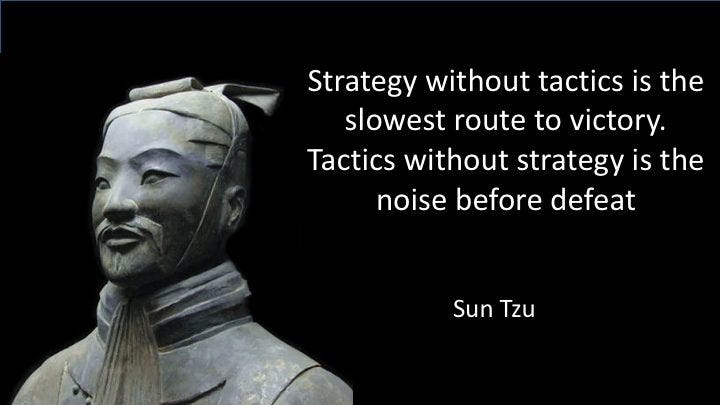Libertarians are underdogs.
The game is rigged against us. The Republican/Democrat duopoly colluded to effectively prevent any 3rd party from winning.
There is no major institution in the country with a strong libertarian influence. Hollywood. The education system. Congress. The president. The corporate media. The deep state. All are anti-libertarian.
Increasing spending, foreign wars, domestic spying and a growing regulatory state are so pervasive, they are almost considered laws of nature.
So what should we do? Is it hopeless? Should we just give up?
Underdogs Win All the Time
The good news: underdogs win all the time. David beat Goliath. Washington beat the British Empire. Trump beat Hillary. The Viet Cong beat the US military. Microsoft beat IBM. Buster Douglas beat Mike Tyson. Nigel Farage beat the European Union.
There are essential lessons for libertarians from these underdog victories.
When Goliath challenged the Israelites to single combat, he expected to fight with sword and spear. There was good reason for this. Single combat was always fought that way. It was an unofficial rule. David saw Goliath’s weakness because he didn’t care about the unofficial rules. He saw that even a giant is susceptible to a distance attack from an agile combatant. Unlike anyone in the Israelite army, David exploited that weakness. It was like bringing a gun to a sword fight. David won because he refused to fight on Goliath’s terms.
George Washington, T. E. Lawrence, the Viet Cong and Taliban all used guerrilla tactics instead of fighting on the stronger opponent’s terms. Washington’s greatest victory, the Battle of Trenton, was fought on Christmas, in the dark, against an isolated garrison. When Washington tried to fight the British on their own terms, he nearly always lost.
Unconventional tactics can be extremely successful. Malcolm Gladwell explained this in his book, David and Goliath:
“Suppose you were to total up all the wars over the past two hundred years that occurred between very large and very small countries. Let’s say that one side has to be at least ten times larger in population and armed might than the other. How often do you think the bigger side wins? Most of us, I think, would put that number at close to 100 percent. A tenfold difference is a lot. But the actual answer may surprise you. When the political scientist Ivan Arreguin-Toft did the calculation a few years ago, what he came up with was 71.5 percent. Just under a third of the time, the weaker country wins.
Arreguin-Toft then asked the question slightly differently. What happens in wars between the strong and the weak when the weak side […] refuses to fight the way the bigger side wants to fight, using unconventional or guerrilla tactics? The answer: in those cases, the weaker party’s winning percentage climbs from 28.5 percent to 63.6 percent. To put that in perspective, the United States’ population is ten times the size of Canada’s. If the two countries were to go to war and Canada chose to fight unconventionally, history would suggest that you ought to put your money on Canada.”
Strength is often an illusion. Too much strength can leave you clumsy and inflexible. It can leave you blind to your own weaknesses. The Democrats and Republicans are deeply entrenched. But they have left themselves inflexible and open to attack by anyone willing to see and exploit their weaknesses.
If libertarians want to win, we must learn three essential lessons from past victorious underdogs:
- Never challenge our opponents on their terms
- Find and exploit our opponents’ weaknesses
- Sometimes, we must break unofficial rules
Why Libertarians Always Fail
Many libertarians have abandoned the idea of victory through the political system. They look at the failure of past political efforts and conclude it is hopeless. They are right. If we keep doing the same thing.
With a few exceptions, libertarians have followed a single political strategy:
Step 1: Convert people to libertarianism
Step 2: Win elections
Step 3: Change policy
This strategy has always failed and it will always fail. Why? Because it challenges Democrats and Republicans on their own terms. Because it plays to our weakness instead of exploiting the weaknesses of the duopoly. Because it follows all the unspoken rules.
Slight variations on this strategy (such as infiltrating the Republican Party, focusing on local elections, recruiting dynamic candidates or purifying the message) will not make a difference. Those strategies still have the same fatal flaws.
To win, we must completely throw out that old playbook and find something new. We must totally change the way we think about politics. We need to change both our strategy and our tactics.
The Strategy
The key to good strategy is to focus on the right goal. Many libertarians confuse intermediate goals (converting new libertarians and winning elections) for the final goal (changing policy). We must relentlessly focus on policy. Not maximizing votes for Libertarian Party candidates. That is the real goal.
We also need to remember how policy is really made. Policy isn’t made because the voters wanted it or because they won an election. It’s made because someone gained leverage over powerful people and used that leverage.
I want this to be perfectly clear. The only strategy that will work for libertarians is this:
- Focus maniacally on changing policy at the expense of everything else. Yes, even at the expense of winning elections or changing hearts and minds.
- Challenge the duopoly on our terms, not theirs.
- Find and ruthlessly exploit political weaknesses.
- Break the unofficial rules of politics whenever it can give us an advantage. This doesn’t mean we break the official rules. In fact, it is essential that we follow the election rules perfectly.
- Gain leverage over politicians and exercise that leverage to get policy wins.
It is an unspoken rule in politics that you run for office to win. The libertarian party, so far, has followed that unofficial rule. It’s time to start breaking that rule. Instead, our strategy should be to spoil elections for incumbents. We should seek to make every incumbent president a one-term-president. Then, we leverage that spoiler status to get policy wins.
This is an essential point: if our focus is on winning elections, we will not take the opportunity to use our leverage. Once we have the leverage from spoiling the election, we must use it to force real policy concessions from the major parties.
The Tactics
Now that we have the strategy, we need to execute it. We need tactics. How do we maximize the results from this strategy? How do we achieve maximum leverage and use that leverage to get the most possible policy wins?
The first tactical step is to amend the bylaws of the Libertarian Party to include this section:
“The primary goal of the Libertarian Party is to work outside the two-party system to encourage Republicans and Democrats to enact policies that promote freedom and prosperity for the American people. To achieve this goal, we will do everything in our power to spoil the election for any incumbent president or party who does not substantially enhance liberty during their term.
“If an incumbent president accomplishes three of these policy changes during their term, the Libertarian Party will immediately suspend our presidential campaign and throw the entire weight of the party behind the incumbent or the candidate from the incumbent’s party.
- Reduce overseas deployment of US troops by at least 50%.
- Audit or Abolish the Federal Reserve.
- Reduce federal spending by at least 10% over the course of the term.
- End federal drug prohibition.
- Repeal the Patriot Act and all warrantless domestic spying programs.
- End qualified immunity, no-knock raids and civil asset forfeiture.
- Pardon at least 100,000 non-violent criminals, including all whistleblowers who reported government corruption.
- Eliminate the ATF, Department of Education or the DHS. Do not replace them or shift their mandate to another agency.
- Repeal the Affordable Care Act and do not replace it.
- Reform the FDA so it only approves drugs based on safety, not efficacy.
“To qualify for this program, the incumbent party must NOT substantially increase the size and scope of government by starting a new war, passing new gun control, passing new corporate welfare programs or passing any major new economic regulation.”
The second step is to make Republicans and Democrats painfully aware that libertarians are the reason they are losing elections. There are four steps to making this happen.
1. Focus all of our attention and resources on races that are visible and emotionally charged. That means presidential and gubernatorial races.
Our goal is to get maximum leverage to use against the Republicans and Democrats. The fact is, they don’t care very much about a city council seat or even a state representative. If we are going to get maximum leverage, we need to cost them the election for a position they care deeply about.
2. Target the incumbent, no matter what party.
It is conventional wisdom that incumbents have a big advantage. Libertarians must change that. The conventional political wisdom must be changed to this: any incumbent who wants a second term in office must appease libertarians or the LP will spoil the election for them.
This means, every election, we must specifically tailor our strategy to peel support from the incumbent. For example, in 2024 we will be seeking to spoil the election for the Democrats. That means we need to focus our messaging on attracting Democrat leaning voters. We should never stop being libertarians, but we can focus on issues that are especially important to the Democrat base. Focus on police reform, corporate welfare, foreign policy and the drug war. Focus resources on geographic areas and demographic groups that Democrats are counting on winning by wide margins.
3. Focus on swing states.
The electoral college makes the presidential election extraordinarily easy to spoil. This is the weakness libertarians must exploit.
The process is simple. Focus all LP resources on the 5-10 most important swing states. Knock doors. Advertise. Send direct mail. Hold conventions and meetings. Get local. All focused on those swing states. We only need to get a few hundred thousand voters in a few key states to swing to the LP candidate in order to change the outcome of the whole election. With a small amount of resources, we will have changed the president.
4. Own it.
The most difficult question for any libertarian candidate to answer: “Why should I vote for you if you have no chance of winning?”
Now we have an answer. This is the pitch:
“We know we’re not going to win. We don’t even want to win. But let’s face it, Democrats know they don’t need to do anything for you. They can just use scare tactics to make you hate the other guy. They will never change anything until you withhold your vote from them. Until you hit them where it hurts: their power. When you vote for us, you are telling the Democrats that they need to change or they will keep losing elections.”
The third step is to let the duopoly know it doesn’t need to be this way. They can stop the pain. They can win a second term again. They simply need to meet our demands that are clearly laid out in our bylaws. They simply need to do their job and enact policies that increase liberty and prosperity.
This strategy can be adapted to state elections. Make it clear. If the governor wants a second term, she needs to meet our demands. Otherwise, we will run against her as a third party and spoil the election for her. Each state can customize the strategy to meet their state’s unique situation.
Eventually, one party will give in and meet our demands. What do we do then? We coalition with that party for the next election. We suspend our campaign and throw our full weight behind them. We do everything we can to make sure they win. It is essential that they know that doing what we demand is a surefire way to win an election. Because the next election, we will make the same demands. They need to enact at least three more of our policies or they will lose again.
Stop Doing List
Before the battle with Goliath, King Saul offered David his armor. David refused. He realized his best chance was to play to his own strengths and to remain agile. Armor was the way the dominant warriors fought. He was an underdog. He had to fight like one.
The lesson for libertarians is this: we need to stop doing things that don’t play to our strengths.
Sometimes the things we must stop doing are painful to let go of. Sometimes it even feels heretical. Sometimes it feels like going into battle without armor.
But underdogs must have maniacal focus on the right priorities. We don’t have the resources to waste on vanity projects, distractions and strategies that have already failed us.
Here are five things libertarians must STOP doing if we want to be successful:
1. Apologizing for spoiling the election.
The underdog strategy guarantees one thing: to make a lot of Democrats and Republicans very angry. That’s okay. In fact, that’s kind of the point. Don’t apologize. Whatever you do, don’t ever try to convince them we didn’t actually spoil the election.
When someone gets angry at you for making their candidate lose get in the habit of using one simple phrase: “Earn my vote next time.” This strategy has a huge advantage: we tell both parties exactly what they need to do to earn our vote. Don’t apologize for their failure to promote liberty. Especially when we so conveniently gave them a list of reasonable, meaningful policy changes that would have earned our vote and made their base happy, too.
2. Ballot access in all 50 states.
Obtaining ballot access in all 50 states is a huge resource drain on the Libertarian Party. We take a lot of pride in being the only 3rd party with that distinction. But it is nothing except a vanity project. Ballot access has never gotten us anything and it never will.
The only votes that matter in the presidential election are in Michigan, Wisconsin, Pennsylvania, Georgia, Arizona, Ohio and Florida. That’s true if you are a Democrat or a Republican. It’s true if you’re a Libertarian. Getting 5% or even 10% of the vote in Idaho or Oregon gives us no leverage. The duopoly doesn’t care about those votes, so we shouldn’t waste our resources getting those votes.
All presidential campaigning should be focused on swing states. And it should be focused on peeling support from the incumbent. There may be reasons to hold fundraising events outside of the swing states, but no campaign events.
3. Arguing about messaging.
There is an idea, popular with libertarians, that if the LP purifies its message or takes principled courageous stands, they will be successful messengers for liberty. There is zero evidence for this. We’ve run pure, firebrand libertarians. We’ve run pragmatic, centrist candidates as well. Neither has been effective at promoting libertarianism.
So the good news: you don’t need to stress about their messaging anymore. A perfect message from the LP won’t attract many recruits. And an imperfect one is unlikely to chase them away.
We know what works to attract new libertarians:
- Fiction (Ayn Rand, Ron Swanson and Robert Heinlein)
- College recruitment (YAL)
- Podcasts and Youtube (Dave Smith, Tom Woods and John Stossel)
- Economists (Milton Friedman)
- Running libertarian-leaning Republicans (Ron Paul)
- Respected libertarian publications like Reason Magazine
If your goal is to recruit new libertarians, do the things we know work. Don’t waste your resources turning the Libertarian Party into a recruiting tool.
But, truth be told, libertarians overrate the importance of recruiting. Instead of asking how libertarians can grow our numbers, start asking how we can punch above our weight with the numbers we already have. David didn’t wait until he was 9 feet tall to fight Goliath. He assessed his own strengths and weaknesses and he decided to win, despite the height disadvantage.
4. Waiting for election reforms
“Once they let us in the debate, things will be different.”
“Third parties can’t have influence until we have ranked-choice voting.”
“We must abolish the two-party system.”
These are all defeatist attitudes. Why would the two parties want to dismantle the two party system that benefits them so much? Why would they ever let a potential spoiler into the debates?
Stop waiting for the duopoly to play fair and start playing to win.
5. Winning elections
If we have enough influence to win a major election, we should have traded that influence for policy wins a long time ago.
When libertarians win, it is nearly always at the local level. Focusing on small elections makes sense if our goal is to get election wins under our belt. But that shouldn’t be the goal. A single city councilor or state representative will do little to change laws. If we are going to win, we need to stay focused on the goal: changing policy.
The Power Corrupts Conundrum
Any libertarian political strategy must deal with a contradiction. We are a group of people, philosophically opposed to political power, seeking to gain political power.
We realize that power corrupts. How can we be assured that when we gain political power, we won’t be corrupted as well?
Milton Friedman explained why even the right people would be compromised if they were in the wrong system. “I do not believe that the solution to our problem is simply to elect the right people. The important thing is to establish a political climate of opinion which will make it politically profitable for the wrong people to do the right thing. Unless it is politically profitable for the wrong people to do the right thing, the right people will not do the right thing either, or if they try, they will shortly be out of office.”
A guerrilla political strategy resolves the conundrum. It is a strategy to change political policy without ever taking the reins or political power. It is a method for us to make it politically profitable for the wrong people to do the right thing.
A Beautiful Strategy
The philosophy of liberty is beautiful. I mean that literally. When I contemplate the philosophy of great thinkers like Frédéric Bastiat, John Locke, Murray Rothbard and Milton Friedman, I experience the same fulfillment I feel when I’m admiring a beautiful painting, sculpture or symphony. It is aesthetically pleasing.
Why is liberty so beautiful? I think there are two reasons.
One is that it is both complex and simple at the same time. A painting may have intricate details, subtle brushstrokes and complex technique. But when you step back, all the complex elements come together to form a simple, cohesive picture.
Liberty is much the same way. It involves sophisticated philosophical arguments, counterintuitive economic insights and nuanced observations. But when you take a step back, it is so simple. It is just a respect for freedom, property and for the individual’s right to pursue his or her own happiness.
The second reason libertarian philosophy is beautiful is that we can see it in the real world, much like great art mirrors the real world. We can see that when societies adopt libertarian policies, they tend to flourish. No society has become fully libertarian. But the closer they get, the more individuals in the society prosper.
If our philosophy is so beautiful, then why has our political strategy always been so ugly?
The first problem is that our strategy is complex, but it has nothing to tie it together. Many times our strategies clash with each other. When you take a step back, you see a dysfunctional, contradictory mess. The final picture is incomprehensible.
The second issue is that libertarian political strategy doesn’t have real world results. Libertarianism has been around for over 50 years. What political victories do we have? Very few. And if we do have victories, they are almost always symbolic.
If we want our political strategy to be as beautiful as our political philosophy, we need to fix those problems. Guerrilla politics resolves both.
First: it provides us a narrative. A fundamental principle that ties all of our efforts together. We fight like underdogs.
We fight on our terms. We break unofficial rules. We exploit weaknesses. We get leverage and use it. And above all else, we focus on the right goal: changing policy.
Second: it works in the real world. Guerrilla tactics are remarkably effective in war, business, sports and politics. That is well documented. But more importantly, guerrilla tactics are effective when libertarians use them.
There is an unofficial rule in politics: politicians don’t challenge incumbents from their own party. Young Americans for Liberty decided to break that rule. Their political strategy is based on primarying establishment candidates. They fight on their own terms and they exploit the weaknesses in the system. They are successful.
There is an unofficial rule that federal laws must be changed by the federal government. The 10th Amendment Center decided to break that rule. They challenge federal laws at the state level. They work with states to nullify federal overreach like federal gun regulations, immigration restrictions and drug laws. They are successful.
Guerrilla politics is a beautiful strategy for two reasons. It is complex, but tied together with a simple guiding principle. It works in the real world.
If David could defeat Goliath, libertarians can defeat authoritarianism. We just need to do what David did. We need to play to win.
Follow Curt on Twitter @checkmastestate and check out his Substack for more articles checkmatestate.substack.com.
This article originally appeared on Checkmate the State on Substack.







7 comments
… [Trackback]
[…] Information to that Topic: thelibertarianrepublic.com/guerrilla-politics-how-libertarians-can-take-on-the-duopoly-and-win/ […]
… [Trackback]
[…] Read More to that Topic: thelibertarianrepublic.com/guerrilla-politics-how-libertarians-can-take-on-the-duopoly-and-win/ […]
… [Trackback]
[…] Read More Info here to that Topic: thelibertarianrepublic.com/guerrilla-politics-how-libertarians-can-take-on-the-duopoly-and-win/ […]
… [Trackback]
[…] Here you will find 98828 more Information to that Topic: thelibertarianrepublic.com/guerrilla-politics-how-libertarians-can-take-on-the-duopoly-and-win/ […]
… [Trackback]
[…] Find More on on that Topic: thelibertarianrepublic.com/guerrilla-politics-how-libertarians-can-take-on-the-duopoly-and-win/ […]
… [Trackback]
[…] Read More to that Topic: thelibertarianrepublic.com/guerrilla-politics-how-libertarians-can-take-on-the-duopoly-and-win/ […]
… [Trackback]
[…] Find More on that Topic: thelibertarianrepublic.com/guerrilla-politics-how-libertarians-can-take-on-the-duopoly-and-win/ […]